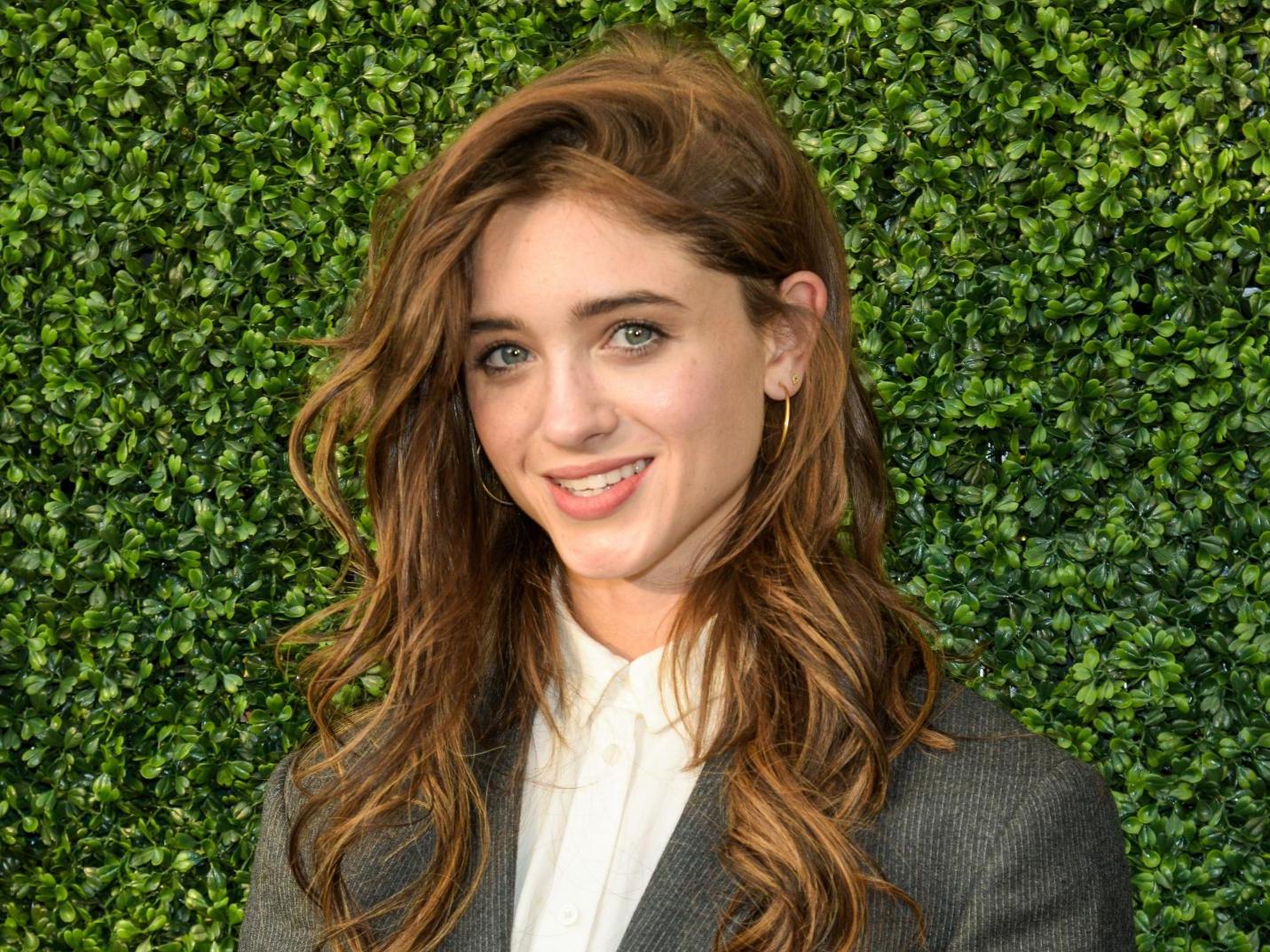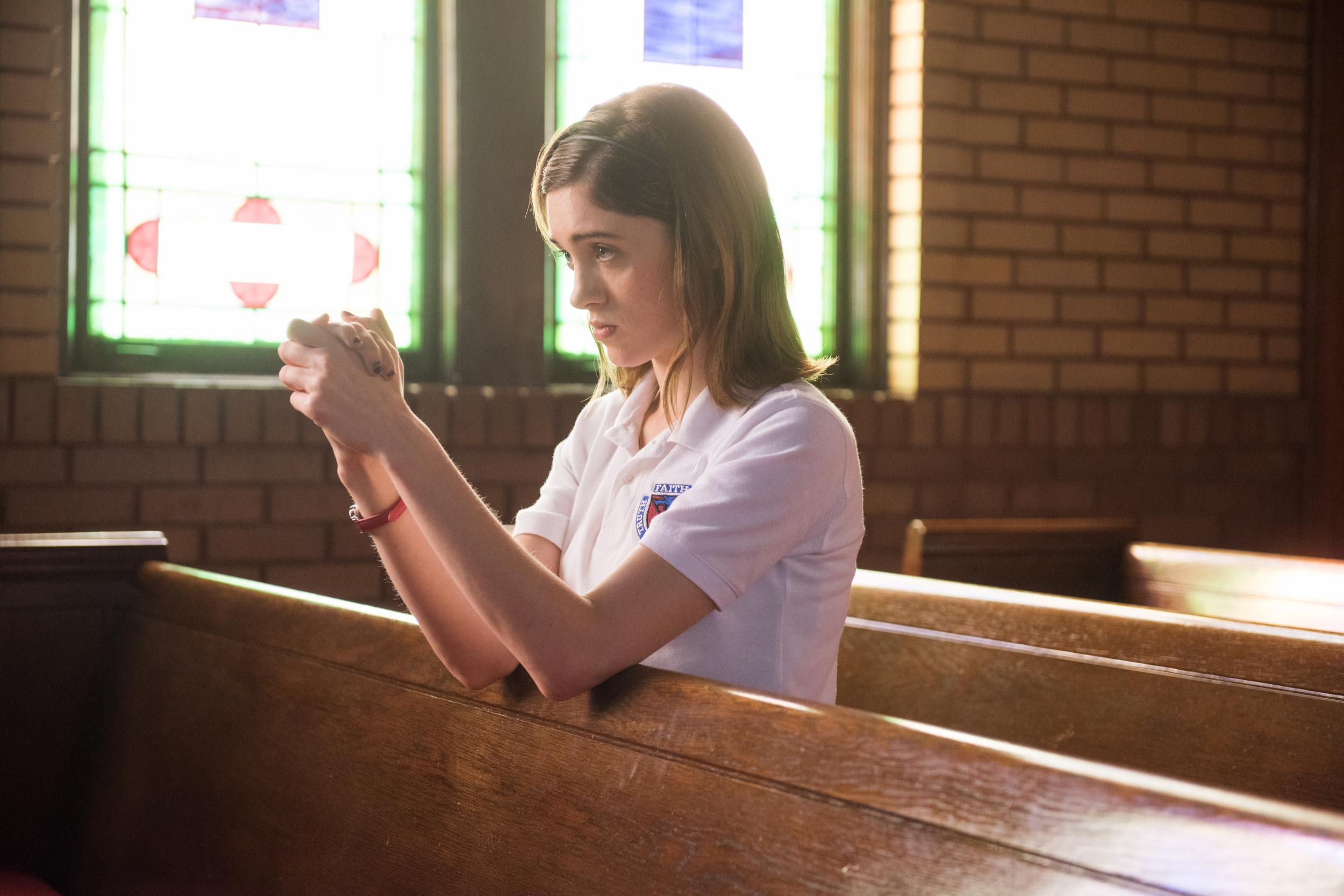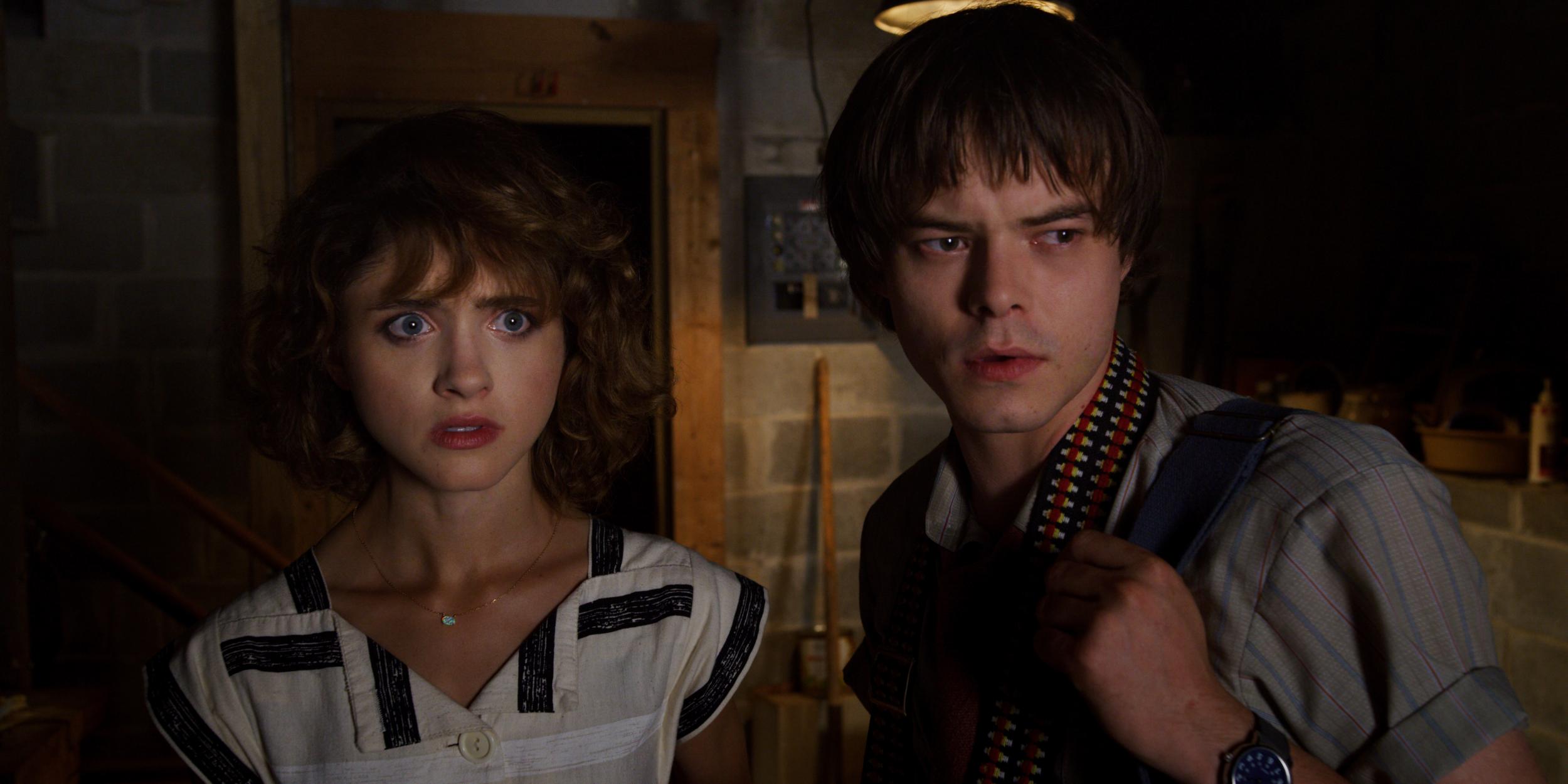Natalia Dyer: ‘I feel protective of the Stranger Things kids – they’re oversexualised in the media’
The Netflix star talks to Ellie Harrison about the clash between religion and sex in her new film ‘Yes, God, Yes’ and what it was like to be plunged into worldwide fame overnight


Your support helps us to tell the story
From reproductive rights to climate change to Big Tech, The Independent is on the ground when the story is developing. Whether it's investigating the financials of Elon Musk's pro-Trump PAC or producing our latest documentary, 'The A Word', which shines a light on the American women fighting for reproductive rights, we know how important it is to parse out the facts from the messaging.
At such a critical moment in US history, we need reporters on the ground. Your donation allows us to keep sending journalists to speak to both sides of the story.
The Independent is trusted by Americans across the entire political spectrum. And unlike many other quality news outlets, we choose not to lock Americans out of our reporting and analysis with paywalls. We believe quality journalism should be available to everyone, paid for by those who can afford it.
Your support makes all the difference.In Yes, God, Yes, Natalia Dyer crouches down in the kitchen of a religious retreat and masturbates with a mop handle. The gyrating only stops (prematurely) when a nun walks in.
“Teenage sexuality is funny and beautiful and awkward and embarrassing,” says Dyer, who’s 25 but whose character, Alice, is 16. We’re speaking over the phone; she’s in Atlanta, where she’s spent lockdown with her boyfriend and Stranger Things co-star Charlie Heaton. “I grew up watching interpretations of females, but it was never like, ‘That’s me,’ it was always like, ‘Oh, that’s how I’m supposed to look, talk and feel in order to get the guy, or whatever.’ So it’s really important to have films like Yes, God Yes, especially when it comes to displaying women and sex, what they want and how they behave.” Even when what they want is to rub up against a mop.
Dyer is chirpy and candid, her Bambi-like innocence and high embarrassment threshold making her adept at portraying the teenage experience. Most famously, she plays the bookish yet badass high-school student Nancy Wheeler in Stranger Things. In that, she’s part of a terrific ensemble cast, but with Yes, God, Yes, Dyer’s knack for capturing the uncertainty and messiness of adolescence is given space to breathe.
Yes, God, Yes – a short film turned full-length feature written and directed by Obvious Child co-writer Karen Maine – follows Alice, a Catholic schoolgirl in Noughties Iowa who discovers masturbation after an AOL chat session takes an unexpectedly smutty turn. Worried she’ll go to hell for being turned on, she sets off on a mysterious religious retreat to try to suppress her urges – with little success. Dyer plays Alice’s naivety with humour and tenderness, her eyes stretched wide and her face arranged into a crinkle of confusion as she asks her classmates what it means to “toss someone’s salad” (you don’t want to know).
In Alice’s “morality class” at school, Father Murphy (Timothy Simons) teaches the teenagers that masturbation and sex before marriage are “against God’s will”. What does Dyer think of the Church’s preoccupation with sex? “I think it’s such a strange concept to take something that feels so instinctual and turn it into something bad,” she says, perplexed. “It feels backwards. We’re all human, we’re not perfect. Let’s not pretend, and not hold people to standards that we don’t hold for ourselves. Why judge people for things that are natural?”

Female masturbation and pleasure are considered taboo in the eyes of the church – and society as a whole, too. Dyer puts this partly down to physiology. “The conversation of male pleasure was a lot more present than female pleasure in my upbringing,” she says. “There’s such a deep history to this, and it’s because male pleasure is very obvious; the male orgasm is needed to procreate and therefore it’s like, ‘OK, well, that has to happen.’ And then the thought of the female having an orgasm, if it does exist it’s surplus.”
As someone born in the Nineties and raised Catholic, I found Yes, God, Yes gloriously relatable, its nostalgic references both spot-on and funny. Alice uses a Nokia phone on vibrate to pleasure herself. She rewinds and replays Titanic’s steamy car scene to learn about sex. Dyer can relate to much of Alice’s experience, too. She was raised in Nashville, Tennessee, where there is “a church every couple of blocks”. She spent her younger years at a private religious school, and remembers hitting puberty “without a lot of guidance in terms of sexuality and sensuality”.
Her family, she says, was not strict about Christianity – “there was a lot of room for questioning and figuring out your beliefs for yourself” – but at school she had Bible class and a chapel to attend. “When you’re going to a school where that’s what everyone else believes and you’re trying to fit in, it’s tricky to figure yourself out personally and spiritually,” she says. Dyer now describes herself as “spiritual”, rather than “religious”. “I’m not a complete disbeliever in something beyond myself,” she says, “but at this point I’m not giving it too many specific parameters.”
Dyer, who has two sisters and whose parents work in the medical field at a Tennessee hospital, says Nashville felt very small when she was a teenager. “By the time I turned 18 I was like, ‘I gotta get out of here, I gotta go to New York City, baby!’” she laughs. “And I did. I just needed to go somewhere bigger.”

Watch Apple TV+ free for 7 days
New subscribers only. £8.99/mo. after free trial. Plan auto-renews until cancelled

Watch Apple TV+ free for 7 days
New subscribers only. £8.99/mo. after free trial. Plan auto-renews until cancelled
Dyer was in her second year at NYU when she was cast in Stranger Things, aged 20. She’d only had a few small roles in Hannah Montana: The Movie and independent films before that, and she thought she had flunked the Netflix auditions. When she got the role of Nancy Wheeler, she was gobsmacked.
Stranger Things’ subsequent stratospheric success was unexpected, too. On paper, it should have failed: the show’s creators, the Duffer brothers, had hardly any TV writing experience; apart from Winona Ryder, the cast was mostly made up of kids and unknowns; it was set in a fictional Indiana town in the Eighties; and it reproduced cliched horror movie tropes. “Nobody knew if it was going to get picked up again after we finished filming season one,” says Dyer. “There was really an air of, ‘We might never see each other again.’” But see each other again they did. It quickly became one of Netflix’s biggest-ever shows and was renewed for a second series almost immediately after launch.
Being catapulted from relative anonymity to worldwide fame overnight was bewildering, admits Dyer, especially when Netflix had only given the young cast one day’s worth of PR training in “how to bridge around questions and avoid giving spoilers”. “No one had any idea how successful the show would be,” she says. “There was no preparation – there couldn’t have been, even if we’d known. It was a surprising and overwhelming shock. Then it was like, ‘OK, this is how it is now’.”
Spilling spoilers is not the only concern the young Stranger Things cast had to contend with. Millie Bobby Brown, who plays Eleven, was listed as one of the reasons TV is “sexier than ever” by W magazine when she was just 13, among a group of much older actors including Nicole Kidman and James Franco. She subsequently spoke out against the “inappropriate comments and sexualisation” she was subjected to as a child actor. Finn Wolfhard, too, has complained publicly about receiving suggestive messages from adult fans when he was 14.

How does Dyer feel about this? “There are so many layers going on here,” she says, cautiously. “I generally feel like, to me, it’s oversexualising them. I feel protective over the younger kids even though they’re not kids anymore, they’re teens. They’re all great people and all having to grow up in very crazy circumstances. As a private person, I just feel like, leave people alone – unless you’re talking about their work or what they want to talk about. It’s a very tricky and complex issue.” Sexualising young actors, she adds, is “a cultural issue, there must be a bigger concept behind it as to why. Just let people be the people that they are, without any judgement.”
Dyer has found the intense press and fan attention difficult at times, too. She says she has a tendency to be “mouse-like and discreet”, and sounds pained as she describes how she used to love people-watching on the streets and subways of New York, “but all of a sudden I was keeping my head down in a baseball cap”.
“It’s lovely to meet fans,” she says, “but it’s very like, ‘Oh my gosh, I just want to go to the grocery store and get some milk. I don’t want to take a photo everywhere I go.’ At first, it was jarring. There are fans everywhere. It’s a difficult thing to navigate. It’s been like five years since we started Stranger Things, and I’ve become more confident in how I handle situations. At first, I had quite a few bouts of anxiety just as the show was coming out because there’s this mentality of letting people down and not giving enough.”
Dyer pauses, before absolving herself. “I feel like my work is what I did,” she says. “I don’t owe somebody a photo. I gave them my work.”
‘Yes, God, Yes’ is out now on Amazon Prime Video and iTunes
Read the rest of our Rising Stars interviews here
Join our commenting forum
Join thought-provoking conversations, follow other Independent readers and see their replies
Comments